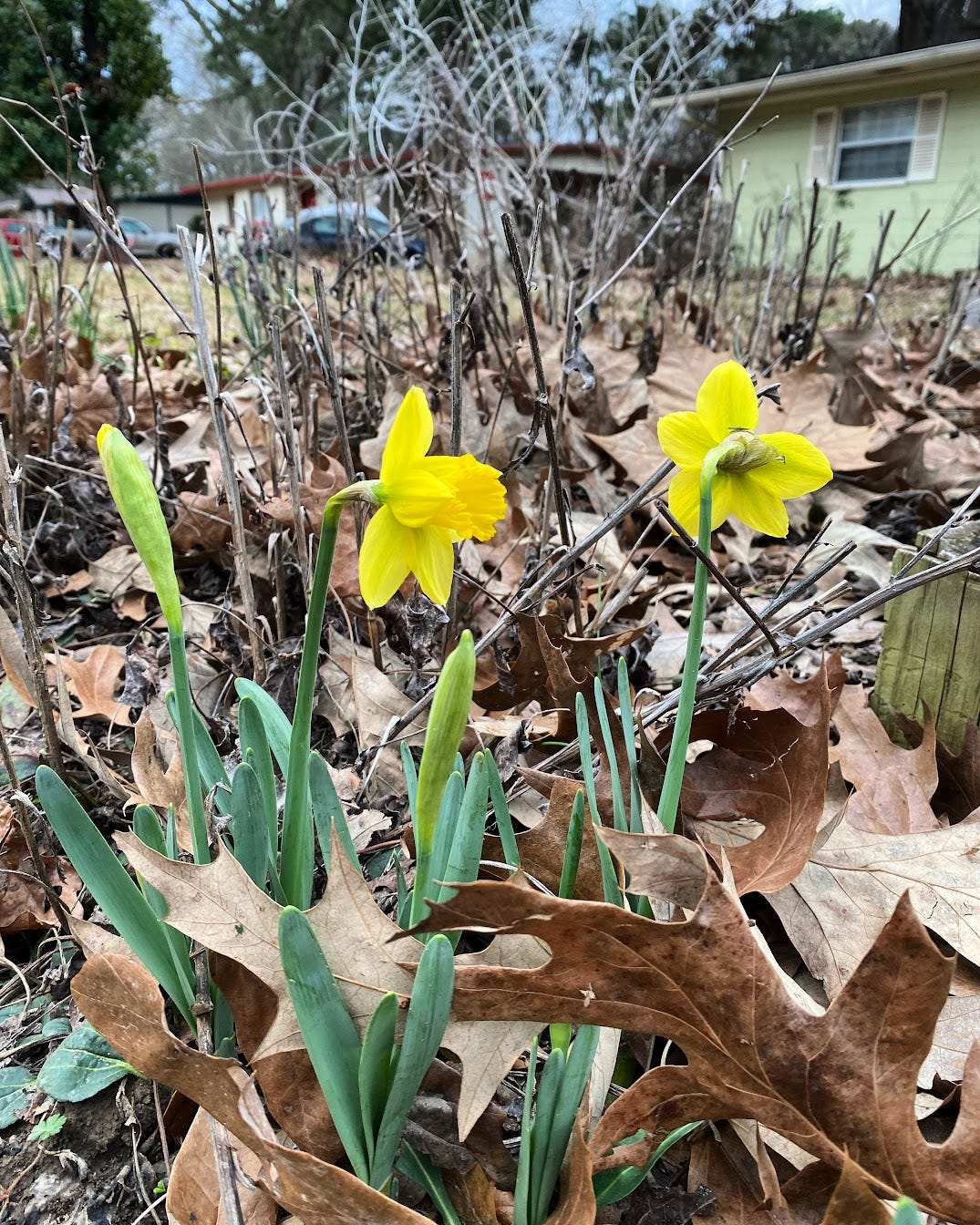Are You Thinking of Leaving, Too?
If I’m being honest, when someone asks me “Are you thinking of moving away from Mississippi?” the answer is usually, “yes.”
For years now, I have been having the same conversation with friends who live in Mississippi. One of us will ask: “Are you thinking of leaving?” and we pick at the question like an old scab, prodding the what ifs and whens and where tos.
These conversations are often triggered by the latest local political, social, or environmental crisis. The closing of the state’s only abortion clinic. Yet another water outage or boil water notice. The embezzling of TANF funds by Republican politicians and their cronies. But sometimes it’s the little things: a car tire busted on a pothole. A new stray dog running around the neighborhood. An especially hot week in August.
If I’m being honest, when someone asks me “Are you thinking of moving away?” the answer is usually, “yes.”
Most of us ponder the question of leaving for reasons that range from the purely practical to the deeply emotional. We want access to abortion, clean water, good public schools. We want smooth roads and predictable water bills. We are always thinking of leaving even if we know we won’t, or we can’t (at least not now), or we don’t really want to. The question is forced upon us by friends and family, by the news cycle. It bubbles up randomly, like an intrusive thought.
One of the reasons I started Rooted was so that I could selfishly have an excuse to ask other Mississippians whether they ever thought of leaving, too. I want to talk about it out in the open—the reasons why we leave and, on the flip side, the reasons why we stay.
For those of us who have the privilege to move about the world freely, who can find jobs in other states, who have the resources to uproot and relocate, the decision to stay is an intentional, conscientious one.
Our January Rooted contributors approached the question “Have you ever thought about moving away?” in surprising and thoughtful ways. Patrick Jerome stays in Mississippi out of sheer stubbornness (and, I suspect, love for and loyalty to the place he calls home), though he recognizes that living here poses a different set of challenges for the more vulnerable members of his family. “Now, they can’t get me to leave. They’ll have to shoot me first. But they could get my wife or my kid to leave. And I’d have to follow them,” he writes.
I envy Exodus Oktavia Brownlow’s sense of sureness and rootedness. She loves to travel, but always wants to return to her home in the Mississippi Hills. Exodus brings up the good point: why leave when the same challenges that plague Mississippi exist in the rest of the country, too? (“As a Black woman, that salt is just gone be everywhere. The mannerisms and language may change, but it’s all the same to me.”)
Two of Louisa Whitfield-Smith’s longest relationships ended because the other person couldn’t see a future in Mississippi. While rooted here at present, and deeply connected to her family and community, Louisa keeps her options mindfully open: “I can’t speak for my future self, only my current.”
Perhaps because we are both Mississippi transplants, I identify most with Rachel Dangermond’s answer: “I think about moving away all the time—I am a child of the diaspora—I’m always going somewhere in my mind.” Her reminder that staying—persevering—is a responsibility we have to make Mississippi a better place, rings true for me, too.
For as long as I live in Mississippi, I expect the “leaving conversation” to continue.
Inevitably there will be more friends, colleagues, and acquaintances who choose to move away, even as others deepen their roots here. One day I’ll likely have the conversation with my own daughter, my Mississippi baby.
In the coming weeks, we’ll continue to publish the voices of Mississippians who have stayed, or left, or adopted this place as home, or returned to the state after years away. Each story is unique. Each story is part of a collective narrative.
At the end of the day, the journey to find home, to settle, or to take flight is a deeply personal one. But it helps to have a friend to talk it out with.
On January 19, the Mississippi House passed HB 1125, a bill that would ban gender-affirming procedures and care for trans- and gender non-conforming minors. It now moves to the Senate. If you live in Mississippi, I hope you’ll call Lt. Delbert Hosemann and tell him you oppose HB 1125.



Love this reflection on the first month of Rooted